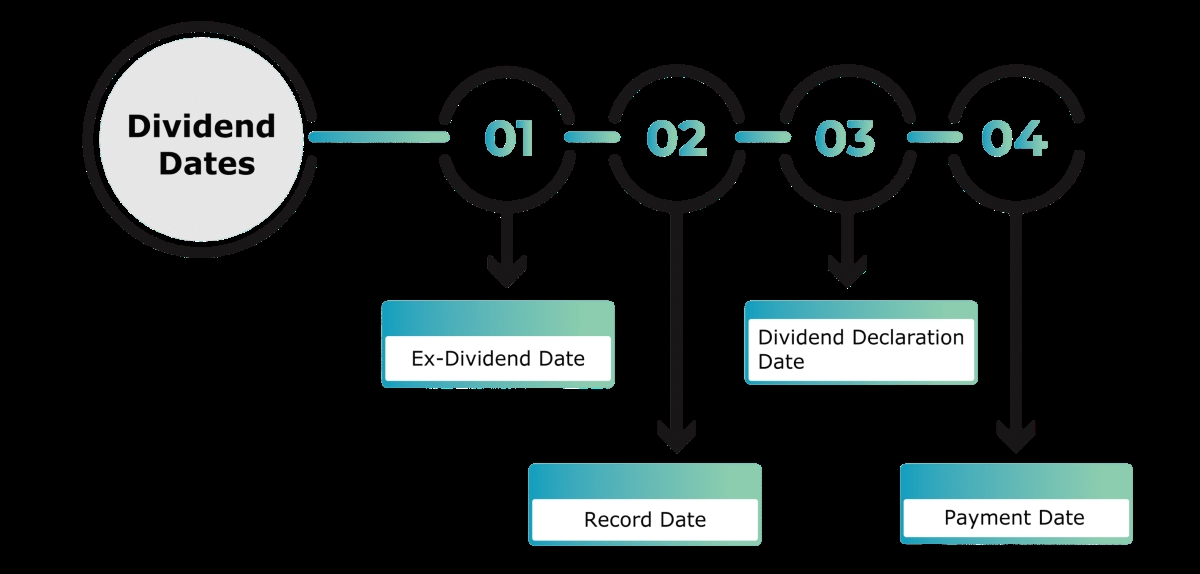

Finance
How To Get Insurance For Landscaping Business
Published: November 24, 2023
Looking to finance your landscaping business? Get expert advice on how to obtain insurance coverage to protect your assets and ensure financial security.
(Many of the links in this article redirect to a specific reviewed product. Your purchase of these products through affiliate links helps to generate commission for LiveWell, at no extra cost. Learn more)
Table of Contents
- Introduction
- Understanding the Importance of Insurance for Your Landscaping Business
- Types of Insurance Coverage for Landscaping Businesses
- General Liability Insurance: Protecting Your Business from Third-Party Claims
- Property Insurance: Safeguarding Your Landscaping Equipment and Buildings
- Workers’ Compensation Insurance: Ensuring Protection for Your Employees
- Commercial Auto Insurance: Covering Your Business Vehicles
- Professional Liability Insurance: Protecting Against Errors and Negligence
- Umbrella Insurance: Providing Additional Liability Coverage
- Tips for Choosing the Right Insurance Provider for Your Landscaping Business
- Understanding the Cost Factors of Landscaping Business Insurance
- Steps to Take When Filing an Insurance Claim
- Conclusion
Introduction
Running a landscaping business can be a rewarding venture, but it also comes with its fair share of risks. From accidental property damage to employee injuries, there are various unforeseen circumstances that can potentially disrupt your operations and leave you financially vulnerable. That’s where insurance comes in.
Insurance is a crucial aspect of safeguarding your landscaping business and protecting it from potential liabilities. It provides you with the necessary financial coverage in case of accidents, lawsuits, or other unfortunate events. By having the right insurance policies in place, you can rest assured that your business is protected from unexpected financial burdens.
In this article, we will explore the importance of insurance for your landscaping business and the various types of coverage you should consider. We will also provide tips on choosing the right insurance provider and understanding the cost factors involved. Additionally, we will discuss the steps you need to take when filing an insurance claim.
Whether you’re a small-scale landscaping business or a larger operation, insurance should be a top priority. It not only protects your assets and investments but also ensures the safety and well-being of your employees. By having comprehensive insurance coverage, you can focus on growing and expanding your business with peace of mind.
So, let’s dive into the world of insurance and discover how you can effectively protect your landscaping business from potential risks and uncertainties.
Understanding the Importance of Insurance for Your Landscaping Business
Insurance is a fundamental aspect of operating any business, and the landscaping industry is no exception. As a landscaping business owner, you face numerous risks on a daily basis. From accidental property damage to injuries sustained by your employees or third parties, the potential for financial loss is ever-present.
By having the right insurance coverage in place, you can protect your business from these potential liabilities. Here are some reasons why insurance is crucial for your landscaping business:
- Protection against property damage: Landscaping involves the use of heavy machinery, tools, and equipment. Accidental damage to client property or third-party assets can result in significant financial losses. With the appropriate insurance coverage, you can be protected financially if such situations arise.
- Liability coverage: Accidents happen, and if a client or member of the public sustains an injury on your business premises or as a result of your operations, you could be held liable. Liability insurance provides coverage for legal expenses, medical costs, and potential settlements, protecting your landscaping business from significant financial consequences.
- Worker protection: Landscaping work can be physically demanding, and injuries to your employees are not uncommon. Having workers’ compensation insurance in place ensures that your employees are protected and can receive the necessary medical treatment and compensation for lost wages if they are injured on the job.
- Peace of mind: Running a landscaping business comes with its fair share of stress and uncertainties. Having insurance coverage in place gives you peace of mind, knowing that your business, assets, and employees are protected.
- Meeting client requirements: Many clients require proof of insurance before hiring a landscaping company. By having comprehensive insurance coverage, you can meet client expectations and secure more contracts and projects.
Insurance for your landscaping business is not just an expense; it is an investment in the long-term success and protection of your company. Taking the time to evaluate your risks and obtain the necessary coverage can save you from potential financial ruin in the event of an accident or disaster.
Now that we understand the importance of insurance for your landscaping business, let’s dive into the various types of coverage you should consider.
Types of Insurance Coverage for Landscaping Businesses
When it comes to insurance coverage for your landscaping business, there are several key policies to consider. Understanding these different types of coverage will help you determine which ones are essential for protecting your business and mitigating potential risks. Here are the main types of insurance coverage typically recommended for landscaping businesses:
- General Liability Insurance: This is one of the most important types of insurance for any business, including landscaping. General liability insurance protects your business from third-party claims of bodily injury or property damage. If a client or third party sues your landscaping business for injuries or damages caused by your operations, this insurance policy will cover legal expenses, settlements, and medical costs.
- Property Insurance: Property insurance covers your business property, including buildings, equipment, and tools, against damages or losses caused by incidents such as fire, theft, vandalism, or natural disasters. It provides financial protection to replace or repair property and ensure your business continuity.
- Workers’ Compensation Insurance: As a landscaping business owner, you have a responsibility to provide a safe working environment for your employees. Workers’ compensation insurance is essential as it covers medical expenses, rehabilitation costs, and lost wages for employees who are injured or become ill while performing their job. It also protects your business from potential lawsuits related to employee injuries.
- Commercial Auto Insurance: If your landscaping business uses vehicles for transportation of equipment, materials, or employees, commercial auto insurance is crucial. This coverage protects your business against damages or liabilities resulting from accidents involving your company vehicles. It typically includes collision coverage, liability coverage, and comprehensive coverage.
- Professional Liability Insurance: Also known as errors and omissions insurance (E&O), professional liability insurance is relevant if your landscaping business offers design services or consulting. It provides protection against claims of negligence, errors, or mistakes in the services provided that lead to financial losses for your clients.
- Umbrella Insurance: Umbrella insurance acts as an additional layer of liability coverage that supplements your other primary liability policies, such as general liability and commercial auto insurance. It provides extra protection for scenarios where the cost of a claim exceeds the limits of your existing policies.
Keep in mind that the specific insurance needs of your landscaping business may vary based on factors such as the size of your operation, the number of employees, and the types of services you offer. It’s essential to consult with an experienced insurance professional who can assess your business risks and advise you on the most suitable coverage options.
Now that we have an overview of the different types of insurance coverage available for landscaping businesses, let’s delve deeper into the details of each policy and its specific benefits.
General Liability Insurance: Protecting Your Business from Third-Party Claims
General liability insurance is a critical coverage for landscaping businesses as it protects you from various third-party claims, including bodily injury, property damage, and personal injury. This insurance policy provides financial protection by covering legal fees, settlements, and medical expenses if a client or third party sues your business for damages related to your services or operations.
Here are some key aspects of general liability insurance for landscaping businesses:
- Bodily Injury Coverage: If a client or a member of the public is injured as a result of your landscaping activities, general liability insurance will cover medical expenses, such as hospital bills, doctor fees, and rehabilitation costs. It also provides compensation for pain and suffering endured by the injured party.
- Property Damage Coverage: Accidental damage to client property can occur during landscaping work. Whether it’s a broken window, damaged irrigation system, or destroyed plants, general liability insurance steps in to cover the costs of repairing or replacing the damaged property.
- Personal and Advertising Injury Coverage: This coverage protects you from claims of slander, libel, copyright infringement, and false advertising. If your business is accused of damaging someone’s reputation or using misleading marketing tactics, general liability insurance can cover legal expenses and potential settlements.
- Legal Defense Coverage: General liability insurance not only covers the costs of settlements and claims but also provides financial support for legal defense, including attorney fees, court costs, and related expenses. This is crucial as legal battles can be costly and time-consuming.
Obtaining general liability insurance for your landscaping business is essential, even if you take every precaution to prevent accidents and minimize risks. It acts as a safety net to protect your business’s financial well-being and reputation in the event of unexpected claims or lawsuits.
When choosing a general liability insurance policy, carefully review the coverage limits, policy exclusions, and deductibles. It’s important to ensure that the policy provides sufficient coverage to protect your specific business needs.
Remember, accidents can happen, even in the most well-managed landscaping businesses. General liability insurance provides the necessary protection to keep your business running smoothly and maintain peace of mind while delivering top-notch services to your clients.
Property Insurance: Safeguarding Your Landscaping Equipment and Buildings
In the landscaping business, your equipment and buildings are valuable assets that need protection. Property insurance is designed to safeguard your physical assets from various risks, such as fire, theft, vandalism, or natural disasters. This coverage provides financial support to repair or replace damaged property, ensuring your landscaping business can continue its operations smoothly.
Here are some key aspects of property insurance for landscaping businesses:
- Building Coverage: Property insurance covers the physical structure of your business premises, including offices, storage facilities, and other buildings. In case of damage from fire, storms, or other covered perils, this coverage helps cover the expenses to repair or rebuild the structures.
- Equipment and Tools Coverage: Landscaping equipment, such as mowers, trimmers, and vehicles, are vital to your operations. Property insurance provides coverage for the repair or replacement of damaged or stolen equipment, ensuring that you can continue providing services to clients without interruption.
- Inventory Coverage: If you store landscaping materials, plants, or other inventory items on your premises, property insurance can cover the costs of replacing or replenishing them in case of damage or loss.
- Business Interruption Coverage: In the event of a covered disaster that forces you to suspend operations temporarily, property insurance may offer business interruption coverage. This coverage provides compensation for lost income and helps cover ongoing expenses, such as payroll and rent, during the downtime.
It’s important to accurately assess the value of your buildings, equipment, and inventory when obtaining property insurance. This ensures that you have sufficient coverage to replace or repair damaged items without incurring significant financial losses.
Additionally, be aware of any policy exclusions or limitations that may exist. For instance, certain natural disasters, such as floods or earthquakes, may require separate coverage. Consulting with an insurance professional will help you understand the specific risks associated with your location and customize your property insurance policy accordingly.
Having property insurance for your landscaping business brings peace of mind, knowing that you can recover financially from unforeseen events that can cause extensive damage. It allows you to focus on running your business effectively without worrying about the potential financial impact of property-related incidents.
Next, let’s explore the importance of workers’ compensation insurance and how it protects your employees and business.
Workers’ Compensation Insurance: Ensuring Protection for Your Employees
As a landscaping business owner, the safety and well-being of your employees are of utmost importance. Workers’ compensation insurance is a crucial coverage that provides protection for your employees in the unfortunate event of work-related injuries or illnesses. It ensures that they receive the necessary medical treatment and compensation for lost wages, while also protecting your business from potential lawsuits.
Here are the key aspects of workers’ compensation insurance:
- Medical Expenses: Workers’ compensation insurance covers the cost of medical expenses incurred by employees for injuries or illnesses directly related to their work. This includes doctor visits, hospital stays, surgeries, medications, and rehabilitation costs.
- Lost Wages: If an employee is unable to work due to a work-related injury or illness, workers’ compensation provides compensation for a portion of their lost wages. This helps them maintain their financial stability and support themselves during the recovery period.
- Disability Benefits: In severe cases where an employee becomes permanently disabled due to work-related injuries, workers’ compensation may provide disability benefits to help them cope with the long-term financial impact of their disability.
- Legal Protection: By providing workers’ compensation insurance, you protect your business from potential lawsuits filed by employees seeking compensation for workplace injuries or illnesses. This coverage helps cover legal costs and potential settlements, minimizing the financial impact on your business.
It’s important to note that workers’ compensation insurance is typically mandatory in most states for businesses that have employees. Even if it’s not mandatory in your state for your specific situation, it is recommended to carry this coverage to protect both your employees and your business.
When obtaining workers’ compensation insurance, you will need to accurately report the number of employees and the nature of their work. The premium you pay for this coverage is based on factors such as the level of risk associated with your industry, the number of employees, and your claims history.
By providing workers’ compensation insurance, you demonstrate your commitment to the well-being of your workforce. It fosters a positive work environment and helps attract and retain talented employees who feel valued and protected.
Now that we’ve explored workers’ compensation insurance, let’s turn our attention to another essential coverage for your landscaping business – commercial auto insurance.
Commercial Auto Insurance: Covering Your Business Vehicles
If your landscaping business utilizes vehicles for transportation of equipment, materials, or employees, commercial auto insurance is a vital coverage to consider. It provides protection for your business vehicles and the individuals operating them in the event of accidents, damages, or liabilities.
Here are the key aspects of commercial auto insurance for your landscaping business:
- Liability Coverage: Commercial auto insurance includes liability coverage, which protects your business from financial obligations if you or one of your employees is at fault in an accident that causes bodily injury or property damage to others. It covers medical expenses, legal fees, and potential settlements if you are sued.
- Physical Damage Coverage: This coverage insures your business vehicles against physical damage resulting from accidents, theft, vandalism, fire, or natural disasters. It helps cover the repair or replacement costs of your vehicles, ensuring that your business operations can continue uninterrupted.
- Uninsured/Underinsured Motorist Coverage: If your business vehicle is involved in an accident with a driver who doesn’t have insurance or has insufficient coverage, this coverage provides protection for your vehicle and covers medical expenses for you and your employees.
- Medical Payments Coverage: Commercial auto insurance may offer medical payments coverage, which pays for medical expenses for you and your passengers in the event of an accident, regardless of fault.
- Hired and Non-Owned Auto Coverage: If your landscaping business rents or leases vehicles or if your employees use their personal vehicles for business purposes, you can obtain hired and non-owned auto coverage to protect your business in the event of accidents or other incidents.
When selecting commercial auto insurance, it’s essential to assess your specific needs. Consider factors such as the number and types of vehicles you own, the distance traveled, and the driving records of your employees. Providing accurate information to your insurance provider will help ensure that you receive the appropriate coverage.
Keep in mind that personal auto insurance policies usually do not cover vehicles used for commercial purposes. Operating your business vehicles without appropriate commercial auto insurance leaves your business vulnerable to significant financial losses if an accident occurs. It’s crucial to comply with insurance requirements and protect your assets.
By having commercial auto insurance in place, you not only protect your business from potential liabilities and financial burdens but also demonstrate your commitment to safety on the roads. It helps promote trust and professionalism with your clients and stakeholders.
Now that we’ve explored commercial auto insurance, let’s move on to another important coverage for landscaping businesses – professional liability insurance.
Professional Liability Insurance: Protecting Against Errors and Negligence
Professional liability insurance, also known as errors and omissions (E&O) insurance, is an essential coverage for landscaping businesses that offer design services or consulting. It provides protection in case of claims arising from errors, mistakes, or negligence in the services provided by your business.
Here are the key aspects of professional liability insurance for landscaping businesses:
- Coverage for Professional Mistakes: Professional liability insurance covers claims of errors, mistakes, or omissions made by your business while providing professional services. This can include design errors, incorrect advice, or failure to meet client expectations.
- Legal Defense Coverage: In the event of a professional liability claim, this insurance coverage helps cover legal defense costs, including attorney fees, court fees, and settlements if necessary. It provides financial support for navigating the legal process associated with such claims.
- Protection against Financial Losses: Professional liability insurance protects your landscaping business from potential financial losses resulting from claims made by dissatisfied clients. It covers damages awarded to clients for financial losses they may have incurred due to your services.
- Customized Coverage: Professional liability insurance policies can be tailored to meet the specific needs of your landscaping business. Coverage limits, deductibles, and policy terms can be adjusted based on the size of your business, the types of services you offer, and the level of risk associated with your operations.
As a landscaping business owner, you strive to provide excellent services to your clients. However, mistakes or misunderstandings can occur, and clients may hold you responsible for any resulting financial losses. Professional liability insurance acts as a safety net by providing financial protection and ensuring that you can handle such claims without jeopardizing your business’s stability.
Keep in mind that professional liability claims can be costly and time-consuming, even if they are unfounded. Having professional liability insurance in place not only protects your business financially but also provides peace of mind, allowing you to focus on delivering high-quality services to your clients.
When obtaining professional liability insurance, it’s crucial to carefully review the policy terms and coverage. Understand the specific exclusions and limitations to ensure that the policy adequately addresses the risks associated with your landscaping services.
Professional liability insurance is a valuable investment that mitigates potential risks and protects your landscaping business’s reputation. By demonstrating your commitment to professionalism and accountability, you can build trust with clients and enhance your competitive edge in the industry.
Now that we’ve explored professional liability insurance, let’s move on to another coverage option that provides additional liability protection – umbrella insurance.
Umbrella Insurance: Providing Additional Liability Coverage
Umbrella insurance is an important coverage option for landscaping businesses as it provides an extra layer of liability protection beyond the limits of your primary insurance policies. It acts as a safeguard against significant financial losses resulting from lawsuits or claims that exceed the coverage limits of your underlying insurance policies.
Here are the key aspects of umbrella insurance for landscaping businesses:
- Additional Liability Coverage: Umbrella insurance offers coverage that extends beyond the limits of your general liability, commercial auto, and workers’ compensation policies. It provides additional financial protection against claims of bodily injury, property damage, or personal injury.
- Coverage Extension: In the event that a claim exhausts the limits of your underlying insurance policies, umbrella insurance kicks in to provide extra coverage. This can be crucial in protecting your business from significant financial loss and potential bankruptcy.
- Broader Coverage Scope: Umbrella insurance may offer coverage for certain types of losses that are not covered by your primary policies. It can include coverage for reputational harm, false arrest, libel, or slander. This gives you greater peace of mind and a more comprehensive level of protection.
- Legal Defense Coverage: Umbrella insurance not only provides additional liability coverage but also covers the costs of legal defense if you are sued. It can help cover attorney fees, court expenses, and other related costs, providing financial support during the legal process.
While umbrella insurance is not a substitute for primary insurance policies, it serves as a crucial safety net against catastrophic losses. It provides added protection when unforeseen events or accidents result in significant damages or liabilities that exceed your existing coverage limits.
When considering umbrella insurance for your landscaping business, it’s important to carefully assess your potential liability risks. Review the coverage limits, exclusions, and deductibles offered by different insurance providers to select the policy that best aligns with your business needs.
Umbrella insurance is an investment in the long-term stability and protection of your landscaping business. It offers an extra layer of security, giving you and your clients confidence that you are prepared to handle unexpected and large-scale liability situations.
Now that we’ve explored umbrella insurance, let’s move on to discuss tips for selecting the right insurance provider for your landscaping business.
Tips for Choosing the Right Insurance Provider for Your Landscaping Business
Choosing the right insurance provider for your landscaping business is a crucial decision that can greatly impact your coverage and overall business protection. Here are some tips to help you select the right insurance provider:
- Assess Your Business Needs: Before searching for an insurance provider, evaluate your business’s specific needs and risks. Consider factors such as the size of your operation, number of employees, types of services offered, and specific coverage requirements. Understand which types of insurance policies are essential for your business.
- Research and Compare Providers: Take the time to research and compare different insurance providers. Look for companies with experience in the commercial insurance industry, specifically catering to landscaping businesses. Read reviews and seek recommendations from other business owners in your industry.
- Check Licensing and Reputation: Verify that the insurance provider is licensed in your state and has a good reputation. Check for any complaints or disciplinary actions filed against the company with the state’s insurance regulatory authority. A reputable provider will have the financial stability and resources to fulfill their obligations.
- Expertise and Knowledge of the Industry: An insurance provider with expertise and knowledge of the landscaping industry will understand the unique risks and challenges you face. They will be able to tailor coverage to your specific needs and offer valuable advice on mitigating risks.
- Financial Strength: It’s important to choose an insurance provider with a strong financial standing. Review their financial ratings from independent rating agencies to ensure they have the ability to pay out claims without delay. This provides assurance that they can support you in times of need.
- Customized Coverage Options: Look for an insurance provider that offers customized coverage options to suit the specific needs of your landscaping business. They should be able to tailor policies to your industry, taking into account your unique risks and operations.
- Transparent and Responsive: Choose an insurance provider that is transparent about their policies, coverage limits, exclusions, and premium costs. They should be readily available to answer your questions and provide prompt assistance when needed, both during the purchasing process and when handling claims.
- Competitive Pricing: While pricing should not be the sole determining factor, it’s important to compare quotes from multiple insurance providers to ensure you are getting competitive rates for the coverage you need. Balance the cost with the level of coverage and service provided.
By following these tips, you can narrow down your options and choose an insurance provider that offers reliable coverage, understands your business needs, and provides excellent customer service. Remember, insurance is a long-term commitment, so take the time to make an informed decision that aligns with the goals and protection of your landscaping business.
Next, let’s discuss the cost factors involved in insurance for landscaping businesses to help you better understand and plan for the associated expenses.
Understanding the Cost Factors of Landscaping Business Insurance
The cost of insurance for your landscaping business can vary based on several factors. Understanding these cost factors will help you budget and make informed decisions about your insurance coverage. Here are some key factors that influence the cost of landscaping business insurance:
- Type and Amount of Coverage: The specific insurance policies and coverage limits you choose will have a direct impact on the cost of your insurance premiums. Generally, the more coverage you need, the higher the premium will be.
- Business Size and Revenue: The size of your landscaping business, including factors such as the number of employees, annual revenue, and previous claims history, can affect the cost of insurance. Larger businesses may have higher premiums due to increased exposure to risks.
- Industry Risk: Landscaping businesses inherently face certain risks, such as equipment-related accidents, property damage, and injuries to employees or third parties. The level of risk associated with your industry will impact the insurance premium. For example, if you offer tree removal services, your premium may be higher due to the higher risk involved.
- Location: The geographic location of your landscaping business can influence the cost of insurance. Factors such as the local climate, prevalence of natural disasters, crime rates, and building codes can impact the perceived risk and, subsequently, the insurance premium.
- Claims History: Your claims history is an important factor considered by insurance companies when determining your premium. If your business has a history of frequent or costly claims, you may face higher premiums as you are considered a higher risk to insure.
- Deductibles and Coverage Limits: The deductible amount you choose for each insurance policy and the coverage limits you select will affect the cost of your premiums. Higher deductibles and lower coverage limits typically result in lower premiums, but it’s important to strike a balance that offers adequate coverage.
- Security Measures and Risk Management: Insurance providers may offer discounts on premiums if your business has implemented certain security measures, such as alarms, surveillance systems, and safety training programs. Demonstrating proactive risk management practices can lower your insurance costs.
It’s important to work with an experienced insurance professional who can assess these factors and guide you in selecting the right coverage options for your landscaping business. They can help you understand the trade-offs between coverage and cost, ensuring that you have sufficient protection at a reasonable price.
Regularly review your insurance coverage to reassess your needs and make any necessary adjustments. As your business grows and changes, your insurance requirements may evolve as well.
By understanding the cost factors and working with a trusted insurance provider, you can ensure that your landscaping business is adequately protected without breaking the bank.
Now, let’s discuss the important steps to take when filing an insurance claim for your landscaping business.
Steps to Take When Filing an Insurance Claim
When an unfortunate event occurs that requires you to file an insurance claim for your landscaping business, it’s important to follow the appropriate steps to ensure a smooth and successful claims process. Here are the key steps to take when filing an insurance claim:
- Notify Your Insurance Provider: Contact your insurance provider as soon as possible to notify them about the incident and initiate the claims process. Provide them with all the necessary details and documentation related to the claim.
- Gather Evidence: Collect any relevant evidence to support your claim, such as photographs, videos, or witness statements. Document the damages, injuries, or losses incurred, as this evidence will strengthen your case and expedite the claims process.
- Complete Claim Forms: Your insurance provider will provide you with the necessary claim forms to fill out. Ensure that you provide accurate and detailed information, including the date, time, and description of the incident. Be thorough in documenting the damages or injuries sustained.
- Cooperate with the Investigation: Your insurance provider may conduct an investigation to verify the details of the claim. Cooperate fully by providing any additional information requested and assisting with the investigation process.
- Keep Records: Maintain a record of all communication and correspondence related to your claim. This includes any conversations with insurance representatives, claim reference numbers, and copies of all documents submitted.
- Obtain Repair or Replacement Estimates: If the claim involves property damage or equipment loss, obtain repair or replacement estimates from reputable service providers. Submit these estimates to your insurance provider to facilitate the claims settlement process.
- Review the Settlement Offer: Once your insurance provider has assessed the claim, they will provide you with a settlement offer. Carefully review the offer to ensure it adequately covers your losses and consult with your insurance agent if you have any questions or concerns.
- Accept or Negotiate the Settlement: If you are satisfied with the settlement offer, you can accept it and proceed with the claims process. If you believe the offer is insufficient to cover your losses, you have the right to negotiate with your insurance provider to reach a fair settlement.
- Follow the Claims Timeline: Adhere to any specified deadlines and requirements set by your insurance provider during the claims process. Timely submission of all requested information and documents will help expedite the settlement and avoid any potential delays or complications.
- Document Expenses and Losses: Keep track of all expenses and losses incurred throughout the claims process. This includes costs associated with repairs, replacement items, or any additional expenses resulting from the incident. These records will help support your claim and ensure accurate reimbursement.
Remember, every insurance policy and claim is unique, and the specific steps required may vary. It’s crucial to carefully review your insurance policy and follow the instructions provided by your insurance provider.
Having proper documentation, clear communication with your insurance provider, and patience during the process will help facilitate a successful claims settlement and ensure that you receive the appropriate compensation for the damages or losses you have incurred.
Now that you understand the steps involved in filing an insurance claim, let’s summarize the key points covered in this article.
Conclusion
Insurance plays a crucial role in protecting your landscaping business from potential liabilities and financial risks. Understanding the importance of insurance coverage and selecting the right policies for your business is vital to ensure its long-term success and stability.
We explored various types of insurance coverage, including general liability insurance, property insurance, workers’ compensation insurance, commercial auto insurance, professional liability insurance, and umbrella insurance. Each of these policies serves a specific purpose in safeguarding your business, employees, and assets.
When choosing an insurance provider, consider factors such as their expertise in the industry, financial strength, reputation, and ability to offer customized coverage options. Working with a trusted insurance professional can help you assess your business risks and find the most suitable coverage at a competitive price.
Remember that the cost of insurance for your landscaping business depends on factors like the type and amount of coverage, the size of your business, location, claims history, and risk management practices. Understanding these cost factors will enable you to budget appropriately for your insurance needs.
When filing an insurance claim, communicate promptly with your insurance provider, gather evidence, complete claim forms accurately, and cooperate during the investigation process. Keep detailed records of all communication and documents related to your claim to ensure a smooth claims process.
Insurance is an investment in the protection and continuity of your landscaping business. It provides peace of mind, financial security, and a competitive advantage in the industry.
So, prioritize insurance for your landscaping business, assess your needs, select the right coverage, and work with a reputable insurance provider. By doing so, you can focus on growing your business, knowing you are protected from potential risks and liabilities that may come your way.
Remember, this article provides a general overview of insurance considerations for landscaping businesses and is not intended as legal or financial advice. Consult with an insurance professional to understand your specific insurance requirements and make informed decisions for your business.
Now, go forth and build a strong foundation of insurance protection for your landscaping business!














